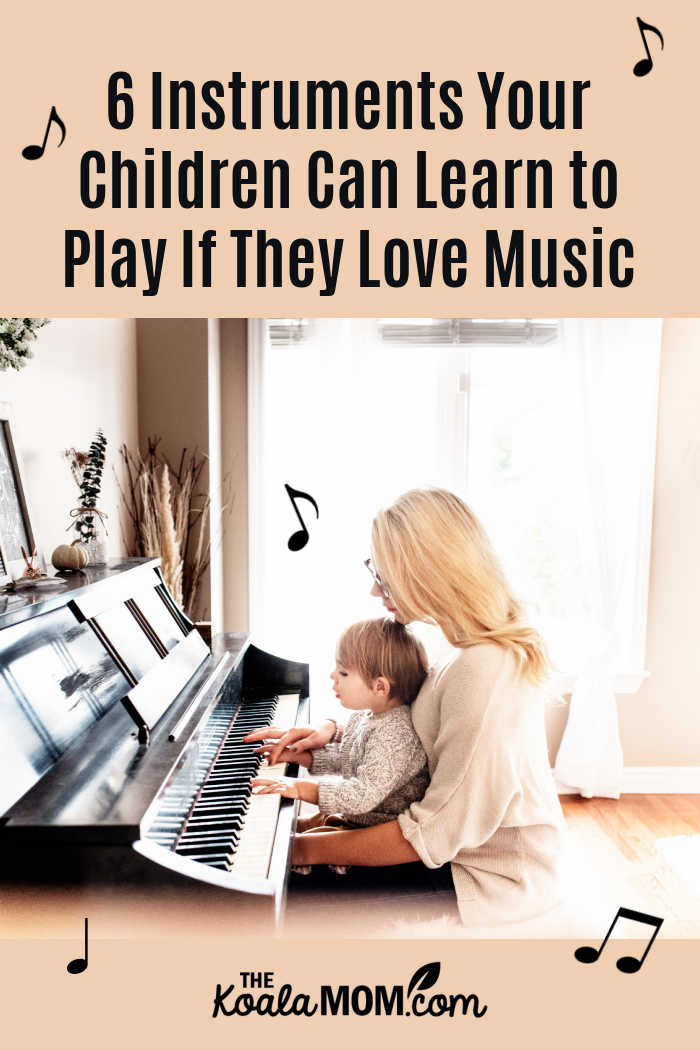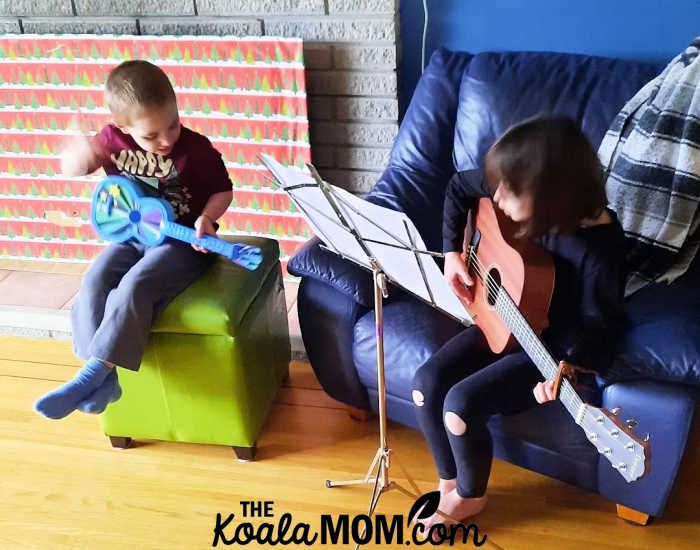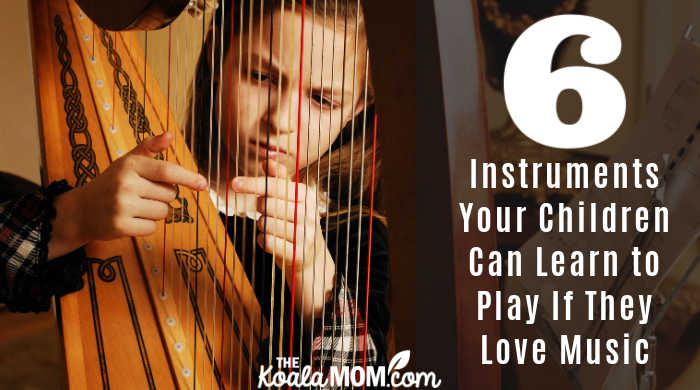If you’ve ever asked your kids what they want to be when they grow up, chances are they’ve responded with “a musician” at least once. It’s not hard to figure out why kids want to play instruments, and they should be encouraged!
Playing a musical instrument is beneficial to your child’s mental health. Kids learn to effectively think in abstract terms, be more creative, and develop their social skills while making music. If you’ve got a musically-inclined child, encourage them to use music as an outlet for their creativity with one or more of the following instruments.

Piano
Piano is one of the best instruments a child can learn to play because it teaches basic music principles that lay the groundwork for other types of music. Kids are sometimes forced into taking piano lessons at a young age, leaving them with a bad impression of the instrument. This is not the correct approach to take if you want your child to be any good at playing the piano.
If your kid doesn’t like playing piano, encourage them to learn the basics by telling them they will be able to learn another instrument of their choice once they finish. After all, this is true! The piano is a great stepping stone for kids to transition into learning another instrument, due to its simplicity.
My brothers and I started learning piano when we were ten. My parents told us that when we’d reached Level 1 on the piano, we could either quit, keep going, or learn another instrument. I decided to both keep going and take up violin as well when I reached Level 1.
Acoustic Guitar
The acoustic guitar is one of the most popular instruments in the world, and for good reason. Guitars are used in many types of music, from worship to country western to rock and even classical. The guitar teaches kids to develop good hand-eye coordination, and also imparts principles that can be applied to other instruments. There are many amazing acoustic guitars to choose from, so do some research to help choose the best guitar for your child.
My third daughter wanted to learn guitar, but the first teacher I spoke to said that he wouldn’t teach anyone younger than ten. She was disappointed that she’d have to wait. About a year later, I asked another teacher about this, and she said of course children under ten can learn—they just get a smaller guitar. Jade started guitar lessons at the beginning of this year with an online teacher and a half-size guitar and she loves playing now.
Another option is to start by playing the ukulele, which is smaller than a guitar but has a similar playing style. Once your child has mastered the ukulele and grown a bit, they can transition to the bigger guitar, perhaps even exploring different types like hollow body electric guitars. Of course, there are many fun ukulele tunes to play too, so this instrument is worth considering on its own.

Drums
You can hear drums in almost any genre of music, so they’re a very useful instrument to learn. Rhythm is a very important part of any piece of music, so learning drums can help children pick up on this. Although loud, drums can have an immensely positive impact on your child’s mental health. Many drummers affirm that playing the drums has helped them with anxiety, restlessness, aggression and many other behavioral issues.
They’re a great outlet for your kid’s internal, pent-up stress. Although kids are still young and naïve, they are their own individuals and can be burdened by their own problems. The good news is that there are electronic drum kits, which are very quiet and make use of headphones. Drumming mainly revolves around rhythm, so music theory won’t be as much of a chore for young drummers to learn.
Flute
The flute is a beautiful woodwind instrument, but it does require some arm strength. Kids need to learn to keep their arms in an elevated position for extended periods of time. Despite this, flutes are very portable and low-maintenance. You can just stuff your flute into your bag and go, which you can’t really do with a piano. The skills that flute players attain are versatile and transferable to other instruments, like the clarinet or alto sax!
If your child wishes to learn the flute, starting on a recorder may be a good option. The recorder is a bit smaller and lighter than a flute, but allows children to start learning breath control and fingering.
Violin
The violin is admittedly one of the most difficult instruments on this list to pick up, albeit one of the most rewarding! If your child can push through the steep learning curve at the beginning, they will be able to master any instrument. The violin will teach your child to persevere in their learning efforts, help them develop better hand-eye coordination skills, and improve their concentration, as well as self-confidence!
Violins are available in very small sizes (I think we have every size from 1/10 to full), which makes it a bit easier for small children to learn (compared to trying to stretch their fingers over a piano keyboard!). Like a flute, violins are also very portable, which makes it easy to share your music and play for family or friends. And if your child isn’t into classical music, try introducing them to fiddling!
Harp
The harp is a beautiful and angelic instrument, though seldom given any attention by children. However, there are many benefits to learning how to play the harp. The harp is quite a complex instrument, so previous piano lessons are useful, though not absolutely necessary. Harps made for adults are a lot bigger than harps made for kids, so pay attention to the size of the harp before purchasing it.

Don’t know where to find a good music teacher? Try your local recreation centres, art centres, and music stores. Ask your friends for recommendations. You can also check the RCM Music Teacher Directory for instructors near you.
Many adults wish they had started playing a certain musical instrument early in their childhood (I do!). Although it’s never too late to learn an instrument—or any skill, for that matter—it’s a good idea to have your child explore their musical interests as soon as they show interest. Sunshine was in Kindergarten when she wanted to start playing violin, although we didn’t find a teacher for her until she was in Grade 1.
Despite this, kids don’t know exactly what they want from the get-go. If cost isn’t your main concern, let your child make an attempt to learn an instrument for a few months, and then switch to another one if they don’t take a liking to it. Renting or borrowing an instrument may be a good option if you aren’t sure your child is going to commit to playing for the long-term.
Nothing makes a child—or adult!—more miserable than being forced to learn an instrument they don’t like. Jade tried violin and hated it before trying guitar and loving it. That’s why indulging in your child’s musical interests is actually beneficial to their brain development, mental health, as well as their social life. And even if not, a musical hobby doesn’t require any additional benefit besides the fun it provides!

No Responses Yet